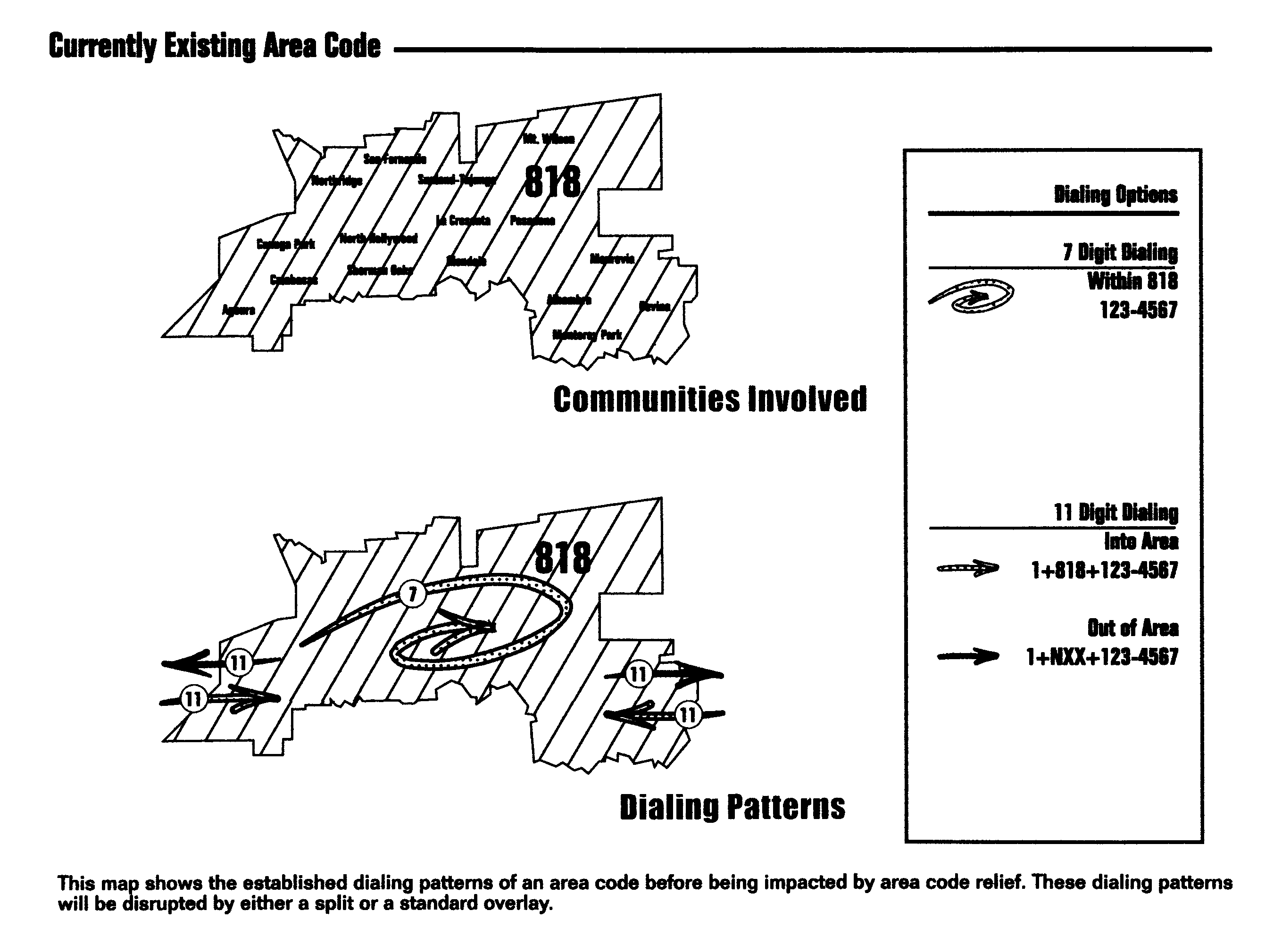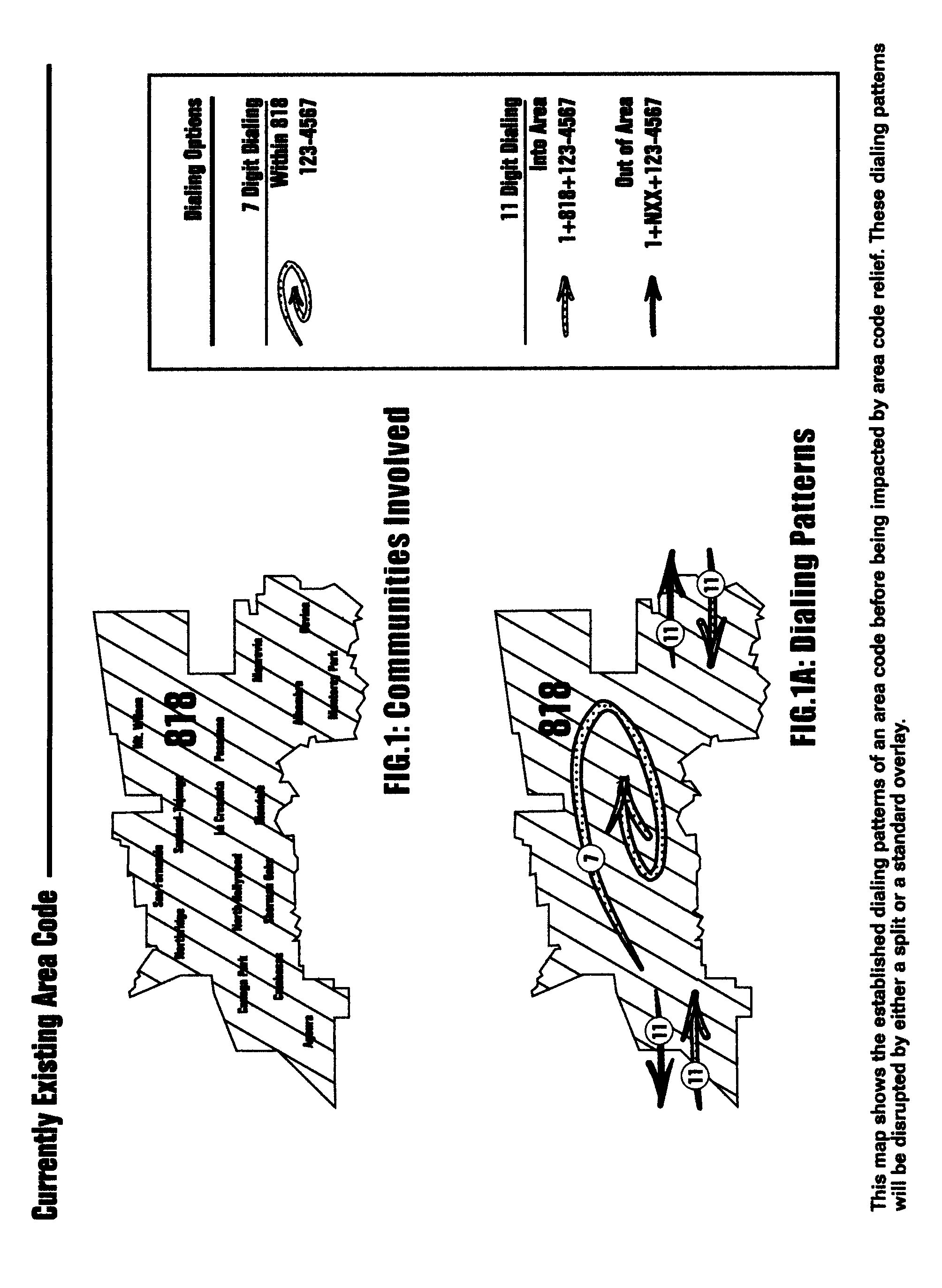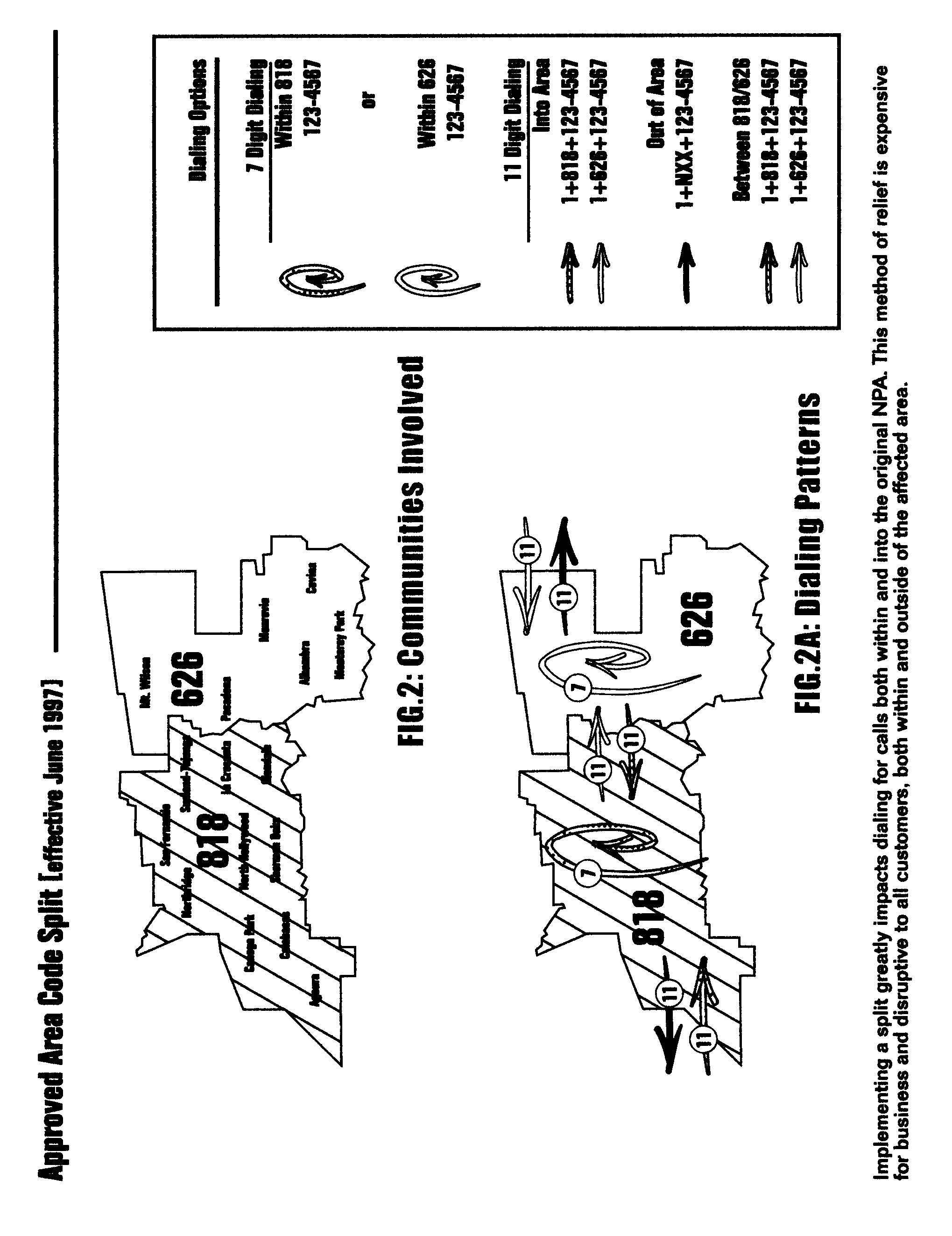Unified method and apparatus to simplify telephone area code dialing
a telephone area code and dialing technology, applied in the field of telephone numbering systems, can solve the problems of increasing stress on the 7-digit numbering scheme for local calling, damage to the dialing landscape, and damage to businesses and consumers, so as to reduce confusion and inconvenience, reduce costs to businesses and disruption overall, and minimize the impact on children and the elderly
- Summary
- Abstract
- Description
- Claims
- Application Information
AI Technical Summary
Benefits of technology
Problems solved by technology
Method used
Image
Examples
Embodiment Construction
[0039]FIGS. 1, 1A, 2, 2A, 3, and 3A illustrate prior art methods of allocating area codes and dialing, as was discussed earlier in the background of the invention.
[0040]FIGS. 4, 4A illustrate a dialing system which supports the implementation of overlays for area code relief by eliminating the public's main objections to them. The plan preserves established dialing patterns to existing (pre-relief) telephone numbers, and unifies all levels of an overlay area with a consistent abbreviated dialing method. Long term relief is provided for exhausted area codes without impacting dialing, switching or software in any other areas of the North American Numbering Plan (NANP).
[0041]Defining the following terms will be helpful for the discussions that follow: parent level of overlay: the original area code (in these examples the 818 area code).
[0042]child level of overlay: a new overlaid area code (in these examples the 626 area code is the first child level).
[0043]overlay area: a single geogr...
PUM
 Login to View More
Login to View More Abstract
Description
Claims
Application Information
 Login to View More
Login to View More - R&D
- Intellectual Property
- Life Sciences
- Materials
- Tech Scout
- Unparalleled Data Quality
- Higher Quality Content
- 60% Fewer Hallucinations
Browse by: Latest US Patents, China's latest patents, Technical Efficacy Thesaurus, Application Domain, Technology Topic, Popular Technical Reports.
© 2025 PatSnap. All rights reserved.Legal|Privacy policy|Modern Slavery Act Transparency Statement|Sitemap|About US| Contact US: help@patsnap.com



